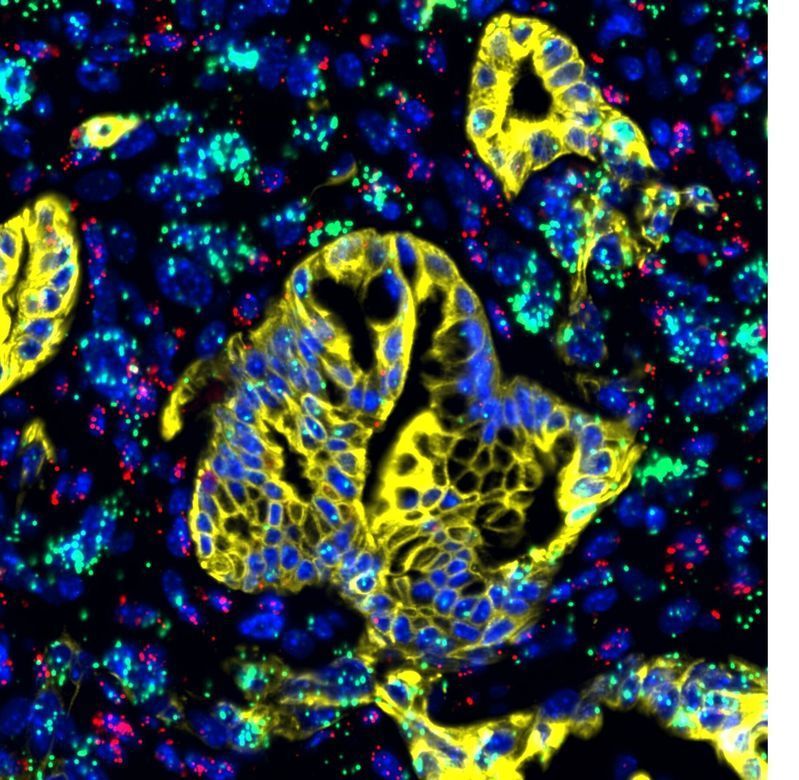Advanced pancreatic cancer is often symptomless, leading to late diagnosis only after metastases have spread throughout the body. Additionally, tumor cells are encased in a “protective shield,” a microenvironment conferring resistance to many cancer treatment drugs. Now, Salk Institute researchers, along with an international team of collaborators, have uncovered the role of a signaling protein that may be the Achilles’ heel of pancreatic cancer.
The findings, published in Nature on April 17, 2019, show that pancreatic stellate cells—resident cells typically dormant in normal tissue—become activated and secrete proteins to form a shell around the tumor in an attempt to wall off and contain it. The activated stellate cells also secrete a signaling protein called LIF, which conveys stimulatory signals to tumor cells to drive pancreatic cancer development and progression. Results also suggest LIF may be a useful biomarker to help diagnose pancreatic cancer more quickly and efficiently.
“There haven’t been very many advances in pancreatic cancer therapy because it’s a difficult cancer to diagnose and treat,” says Salk American Cancer Society Professor Tony Hunter. “Understanding this communication network between the cancer cells and stellate cells may enable us to develop more effective therapies, along with tools for earlier diagnosis.”
